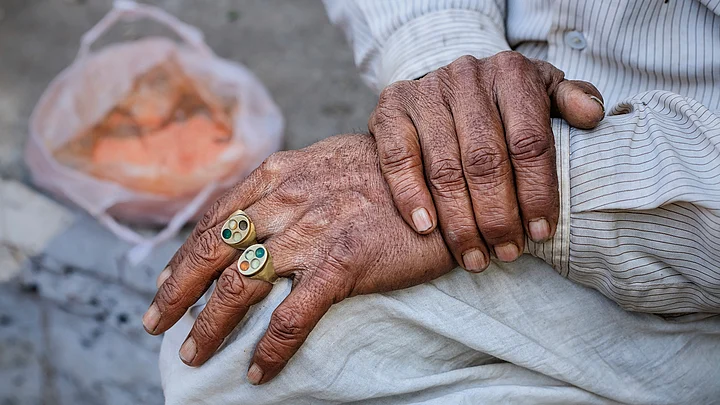American statesman Bernard Baruch once memorably observed, “Old age is always 15 years older than I am!” His sunny optimism does sustain us oldies for some time before we begin to realise that the ageing process inevitably overtakes (and incapacitates) all sooner or later. We are then promptly relegated to the ranks of the elderly-- a state of ‘vegetation’ of sorts where people choose to have little or no truck with us and sometimes even isolate us, mistakenly believing us to be nearing senility. Loneliness and lack of companionship then usually dog us.
True, we old and retired folks once did nurse (or rather were ‘brainwashed’ with) the fond ‘myth’ that old age is a time of well-earned relaxation when one can 'put one’s feet up', take things easy and let the world go by. However, we soon learnt, to our dismay, that the harsh reality is far too different.
For one thing, it was hard to come to terms with the fact that one no longer has a regular job and that one is considered redundant and what’s perhaps even more galling is that one’s successor can do former's job equally well, if not better!
Ill health often stalks us like an unrelenting predator. One spends more time tramping the corridors of hospitals than one does on one’s daily walk.
Twilight Years Usher In Social Isolation
Medical bills swell and some over-conscientious Charlie in the insurance company takes it upon himself to sadistically whittle down one’s claim before sanctioning a pittance. At such times one remembers, with disgust, all those beguiling ads that medical insurers put out to lure the gullible.
With little else to do, many elderly folks spend their sunset years listlessly brooding over the past-- when they ruled the family roost, called the shots and lorded it over their subordinates at work. “Those were the days, my friend,” they will confide in you. “But, sadly, they did end!”
Such nostalgia is quite understandable, more so when one remembers that, generally, the elderly are socially sidelined these days. For many, social interaction is virtually unknown. They are confined to their homes (or old-age homes) by illness or inconsiderate kin, keen to get them off their hands.
What’s the Antidote to Loneliness?
Many elders try to immerse themselves in a hobby or pastime in the hope that it will mitigate their loneliness and sense of isolation. Television, too, is a welcome diversion. But for how long can one peer at a TV screen with its unimaginative and repetitive ads? The fact remains that pursuing personal hobbies and pastimes (no matter how passionate one may be about them) is no substitute for social interaction, which is no less than a lifeline for elders deprived of friendship and all that it implies.
Renowned retiree Ratan Tata, who appears to carry his 85 years lightly, recently bared his soul when he observed, “You don’t know what it is to be lonely!” True, only the lonely do.
They acutely experience the pain of isolation and lack of companionship that more often than not accompanies old age. And this is further aggravated if one has lost one’s lifemate. Little is being done by welfare agencies tasked with the care of the elderly to alleviate this sorely felt problem.
It is said that 'No Man is an Island.' Gregariousness is an innate human trait, the denial of which makes life meaningless and empty. Are we, the elderly, destined to spend the evening of our lives sequestered from society merely because we have lost some of our faculties to illness and the ageing process? Is the lack of our former mobility reason enough to isolate us from the social mainstream? These are crucial questions that our caretakers and loved ones need to answer.
Empathy: Magical Touch Crumpling Mental Health Needs
Isolation and lack of companionship perhaps contribute more to the morbidity of the elderly than physical illness. Depression and mental illness resulting from the absence of social interaction can play havoc on ageing and decrepit minds. Can caretakers and relatives empathise with the plight of the elderly in this regard? Probably not, for no one empathises better with their problems than another elder. Empathy stems from being on the same wavelength.
Many lightly dismiss age as just another number, conveniently forgetting that it classifies one, willy-nilly, as old or young. The unvarnished fact or rather paradox is that humans like to live long but none likes to be old. Being old carries several inherent and obvious disadvantages that make it unattractive, not the least of these being that the elderly are prone to ill health and dependence on others.
With age, they say, comes wisdom and experience – as well as the realisation that the elderly are necessarily a burden to their loved ones, no matter what the latter may say to the contrary. And often the elderly don’t get the care and attention they deserve for no other reason than that their loved ones (on whom they’re dependent) are overwhelmingly preoccupied with their own career and personal commitments.
Striking a mutually satisfactory balance between these and their filial obligations is no doubt difficult in these fast-paced times. However, despite daunting odds, there are many who do juggle such responsibilities to the overall satisfaction of their elderly parents. May their tribe increase.
(The author is a Munnar-based freelance writer whose work has appeared over the years in most of India's major English-language publications, including the Indian Express, the Hindu and the Times of India.)
(At The Quint, we question everything. Play an active role in shaping our journalism by becoming a member today.)
